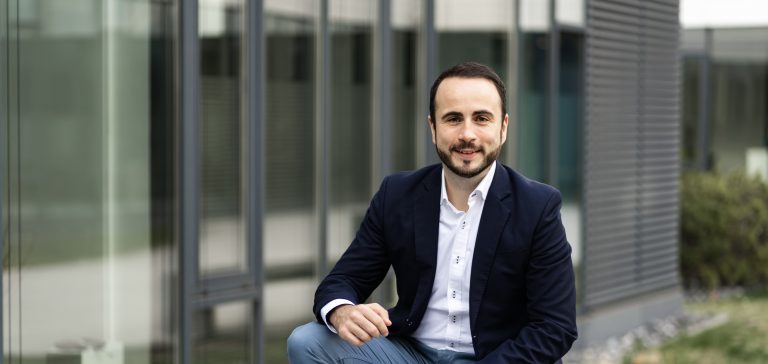The labor market is facing upheaval. Accelerated by the Corona pandemic, people have become more reflective and reevaluate the topic of work. “It is this reassessment that companies are increasingly feeling in the recruiting process,” says Christoph Monschein, General Manager of Edenred Austria. Because needs have changed, demands on employers have increased. As a result, every second employee is dissatisfied with his or her current job situation.
However: “Many companies are slow to respond to the new needs of their current and future employees,” says Christoph. The search for motivated employees is correspondingly difficult for most companies.
Startups as pioneers of the workplace of the future
“Now is the time for startups,” Christoph is convinced. Companies could learn a lot from startups – especially when it comes to positioning themselves as attractive employers. Because “they have always lived up to what more and more employees are increasingly demanding,” says Christoph. These include flat hierarchies, appreciative interaction, eye-to-eye encounters, team spirit, opportunities for creative co-design and development and, last but not least, flexible working hours and locations.
“In such a working environment, a great deal of inventiveness and a mutually supportive dynamic is created,” Christoph knows from his own experience. Because the Managing Director of Edenred Austria is, on the one hand, strongly networked in the Austrian startup scene, and on the other hand, he sees his company itself as a ‘startup within a corporate group’. With a strong parent company behind him, decision-making paths in this country are short, the team is lean and the mindset is similar to that of a startup.
“Startups convey a kind of spirit of optimism.” And that is exactly what many employees long for: to be able to proactively contribute and participate in the further development of the company – and subsequently in the future of society. “Austria needs employers who inspire,” Christoph sums up.
This modern company culture encompasses all employees and creates a strong sense of community and a common goal. Startups and their employees, who act as important brand ambassadors, also carry this mindset to the outside world. “This is extremely attractive to many employees who are dissatisfied with their current job, want to change and are looking for meaningful work,” says Christoph. After all, the trust of employees can only be won through an authentic corporate culture in the sense of long-term employee loyalty.
Purpose as a recipe for success
According to Christoph, this is based on something essential that clearly distinguishes startups from established companies: The Purpose. “The purpose is the motivation and the vision that is deeply rooted in the company,” he explains. Thus, it is the focus and guides all actions. In the case of startups, the purpose often includes an impact idea: one wants to improve society with one’s offerings or services or create sustainable added value. This results in meaningful action and work that aims to achieve a long-term impact.
“Purpose is not only emphasized in young companies, it is literally lived,” says Christoph. This even goes to the extent that startups very often define the Purpose first and only then found the company. “That’s what startups score with compared to established companies,” he sums up enthusiastically. “If you don’t deliver purpose, you can wait for talent to leave.” After all, the competition for the best minds has long begun and is also an integral part of everyday working life in Austria.
Home office, appreciation & Co. – which benefits really count
Benefits have now become the standard. Studies have shown that there is a correlation between the benefits offered and salary satisfaction. However, a distinction must be made here. It is also important to focus on the right benefits.
The cliché of the startup with fruit baskets or ping-pong tables has had its day. “We know from experience that young people in particular are no longer interested in the usual employee benefits,” says Christoph. But what is then well received?
Surveys among employees show that a lunch allowance is one of the most popular benefits. Employees attach great importance to regular, shared lunch breaks. This strengthens team spirit, promotes rest time and increases general well-being and performance. “Employers in Austria have the option of subsidizing their employees’ lunches with up to eight euros per person and per working day – tax-free,” Christoph explains. This, he says, is the largest and most attractive tax allowance. Because per year in such a way at most 1,760 euro come together, which can be granted also retrospectively for the whole year. Especially in times of high inflation, this is not only a meaningful measure of relief for employees, but also a worthwhile alternative compared to a salary increase. What many also do not know: By granting a lunch allowance, the employer can save on non-wage labor costs and the employees also keep more in their wallets due to the tax exemption. “Especially for startups, which usually don’t have a canteen or similar catering options, digital meal vouchers are therefore a very attractive benefit solution,” concludes Christoph. It has also been proven that they promote a balanced diet at the workplace.
The most important benefits also include the intangible conditions of the job – first and foremost the corporate culture, the scope of duties and the behavior of superiors. Flexible working hours, home office options and support with childcare are also important for a good work-life balance. Furthermore, further training, individual development opportunities and even bringing dogs into the office are in demand.
“The big picture and the general operation of the company ultimately carry more weight than the monthly salary in the account. If you only come for the salary, you’ll also leave for the money,” concludes Christoph. The same applies to a large number of benefits, which in reality do not meet the needs of the employees. Although these play an important role as an additional incentive system, they are not the only factors that have a noticeable impact, Christoph emphasizes. Above all, the tax-free lunch allowance, flexibility in the workplace and soft factors, such as those offered predominantly by startups, could positively influence motivation and job satisfaction.
Image: Portrait Edenred Austria Managing Director Christoph Monschein © Philipp Zeppelzauer





